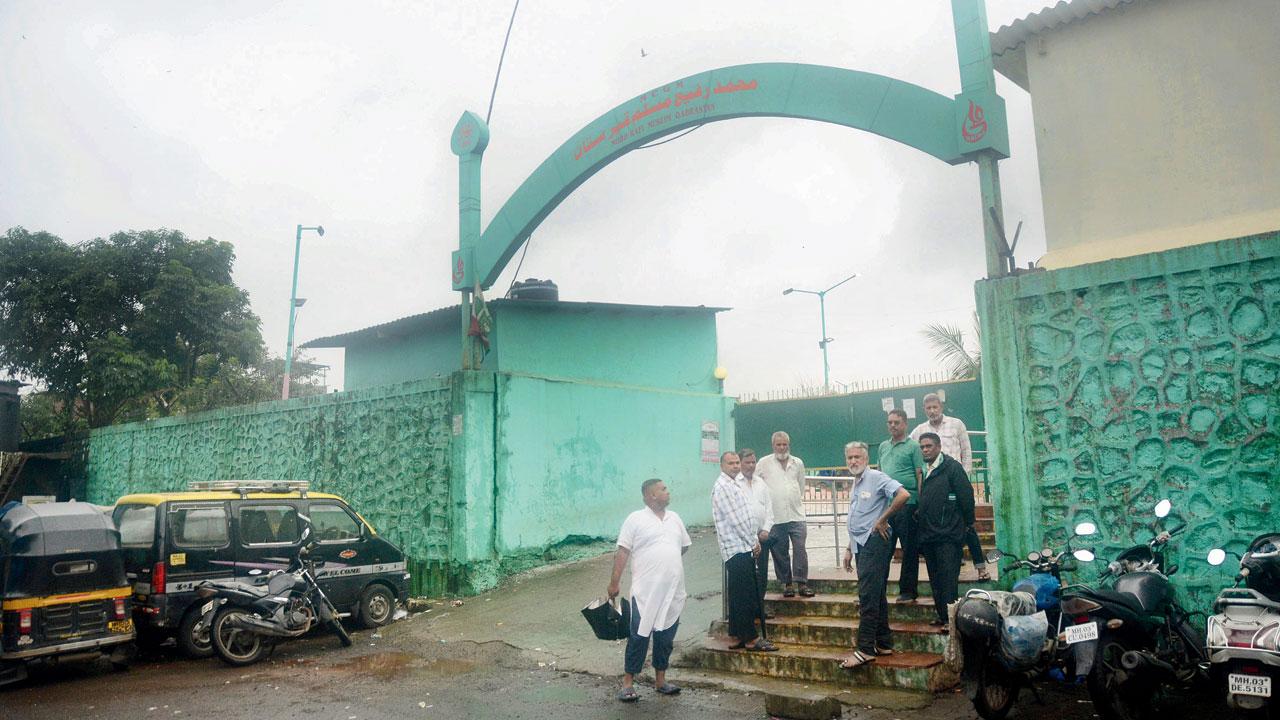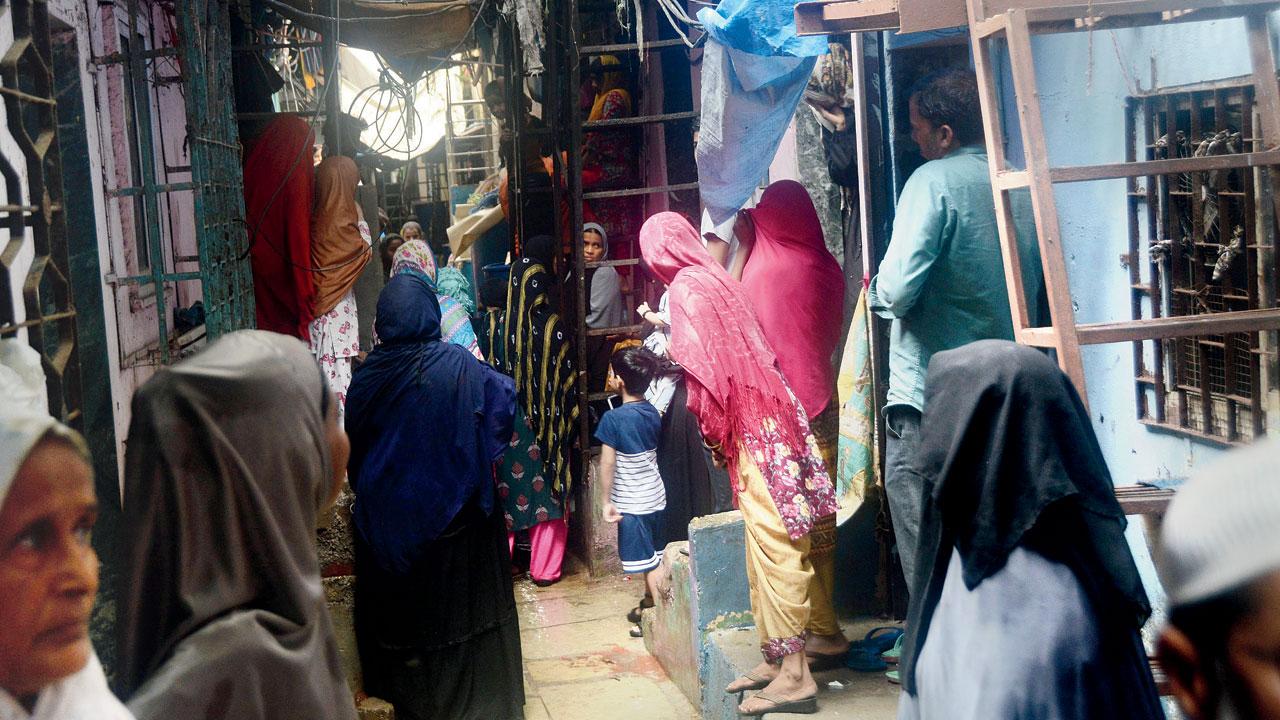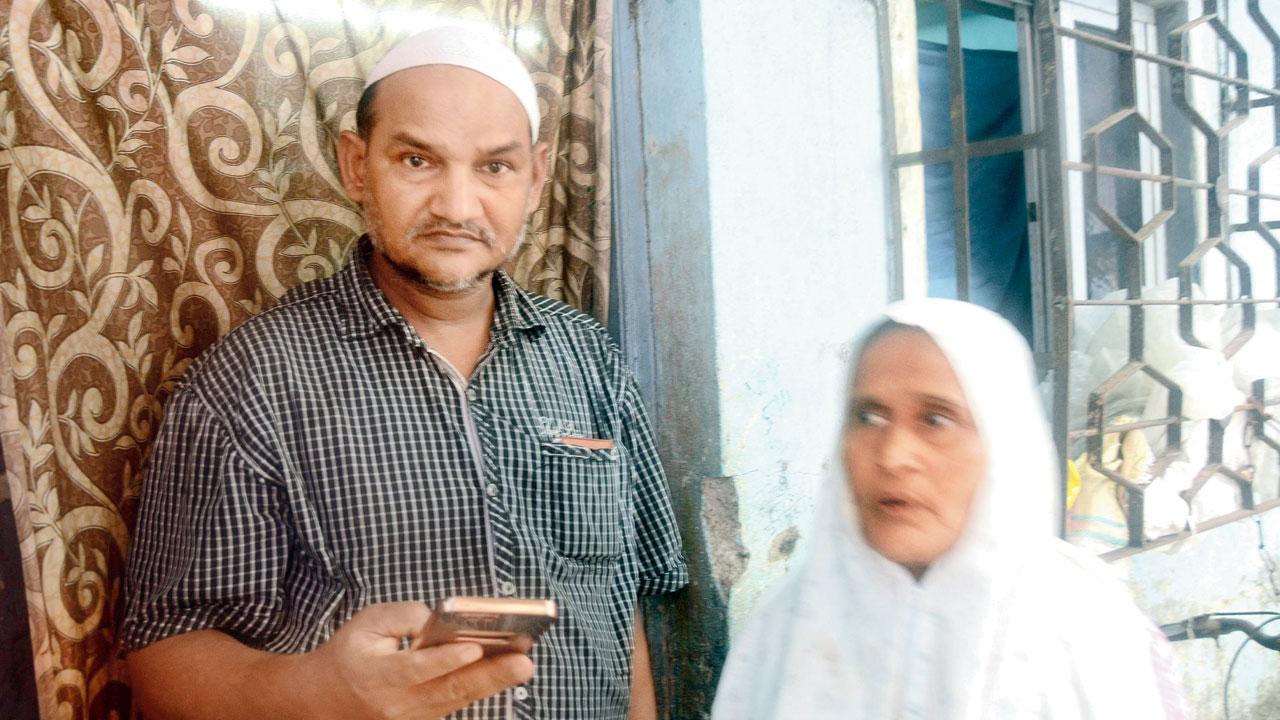It is Mumbai’s largest ward, and has one of the highest Muslim populations; now, graveyards in the Mankhurd-Govandi belt are overflowing

Rafi Nagar Kabristan has been closed for burials for nearly a month. Pics/Sayyed Sameer Abedi
After Kafeel Ahmed’s mother died a year ago, the family buried her in Govandi’s Rafi Nagar Kabristan, a minute’s walk away. When Kafeel died of a heart attack on Tuesday, his final resting place couldn’t be near his mother, as the cemetery had been shut a month ago. “There’s no chance he can be buried here,” said his brother, “We’ll have to take him to the Cheetah Camp cemetery, but even there, we don’t know if there’ll be space.” This burial site is about 7 km from their home.
ADVERTISEMENT
In June, some graves in the Rafi Nagar burial ground were excavated to make room for new bodies. Unfortunately, the process revealed that even after 18 months, bodies had only partially decomposed. As a result, the graveyard was temporarily closed until earlier this month when BMC officials re-inspected the graves, confirming that decomposition was still ongoing, leading to its continued closure.

Another cemetery is approximately 4 km away from the Ahmed family’s house, but the road leading to it is filled with large potholes, making it a challenging commute during this already difficult time. “Besides, digging a grave there during the monsoon is very difficult, as saturated water underneath starts coming out,” said Saffuddin Sheikh, the family’s neighbour. If they cannot find a spot at the Cheetah Camp graveyard, the family will have to consider the one at Chedda Nagar.
Within the vicinity, there are five graveyards - three in Deonar, Baiganwadi, and Rafi Nagar, and two others in Cheetah Camp and Chedda Nagar. Unfortunately, the first three are closed for burials in the area with a majority Muslim population. Moreover, the Rafi Nagar graveyard only opens for visitors from 8 am to 8 pm, which poses a problem for people who wish to offer dua at the grave of their loved ones after the last evening prayers.

Residents gather outside Kafeel Ahmed’s house in Govandi
Sheikh pointed out that although people can visit their family graves whenever they wish to offer dua, it’s incredibly inhumane that many are deprived of this option due to the distance from Rafi Nagar to Cheetah Camp. On the other hand, Rupesh Saware, a BMC employee stationed at the graveyard overseeing space allocation, mentioned, “We close the gates after 8 pm, but some still climb over and come to visit the graves.”
The cemetery is still accepting bodies of minors for burial. “Recently, a child from my neighbourhood was buried there,” shared Mohammad Rafiq, another resident of Rafi Nagar. In mid-July, the Govandi Citizen-Welfare Group and BMC officials convened to address the lack of burial grounds in the area, focusing on improving soil quality at Rafi Nagar cemetery.

Saffuddin Sheikh, the family’s neighbour. Pics/Sayyed Sameer Abedi
Three areas were earmarked for cemeteries in 2022: a 15,800 sq mtr BMC-owned land in Deonar, and a 16,000 sq mtr private property in Village Anik. The owners were instructed to hand over the designated lands. However, plans for a 9,800 sq mtr BMC-owned cemetery in Village Deonar were cancelled. Harshad Kale, deputy commissioner directed the medical officer to review and plan for additional space considering the projected population increase of the ward by 2050.
 Subscribe today by clicking the link and stay updated with the latest news!" Click here!
Subscribe today by clicking the link and stay updated with the latest news!" Click here!







